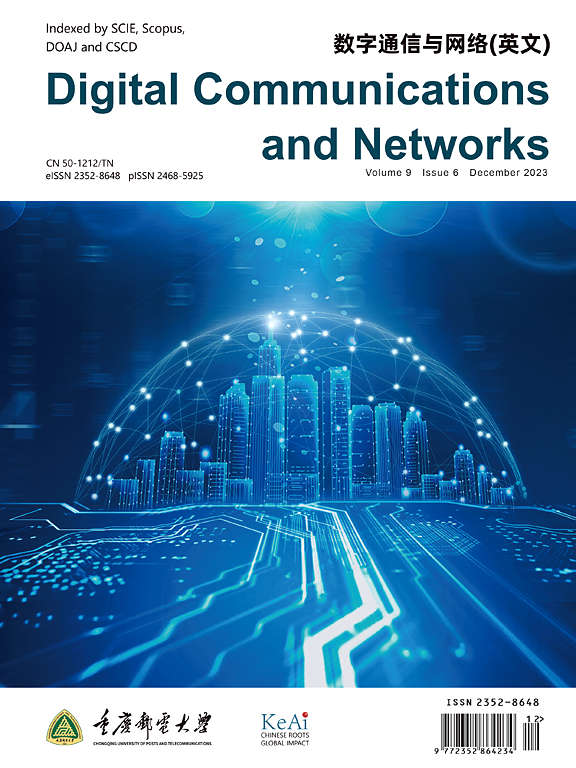基于模型贡献奖励的分层区块链分布式联合学习系统
IF 7.5
2区 计算机科学
Q1 TELECOMMUNICATIONS
引用次数: 0
摘要
分布式联邦学习(DFL)技术使参与者能够协作训练共享模型,同时保护其本地数据集的隐私,使其成为分散和保护隐私的Web3场景的理想解决方案。然而,DFL在去中心化框架下面临着激励和安全方面的挑战。为了解决这些问题,本文提出了一个分层区块链支持的DFL (HBDFL)系统,该系统为DFL相关应用提供了一个通用的解决方案框架。该系统由四个主要部分组成,包括基于模型贡献的奖励机制、经过时间和准确性证明(PoETA)共识算法、基于分布式声誉的验证机制(DRTM)和基于准确性的吞吐量管理(ADTM)机制。基于模型贡献的奖励机制激励网络节点使用其本地数据集训练模型,而PoETA共识算法优化了共享模型精度和系统吞吐量之间的权衡。DRTM提高了系统的一致性效率,ADTM机制保证了吞吐量性能保持在预定义的范围内,同时提高了共享模型的精度。通过数值仿真对所提出的HBDFL系统的性能进行了评价,结果表明,该系统在保证高吞吐量和安全性的同时,提高了共享模型的准确性。本文章由计算机程序翻译,如有差异,请以英文原文为准。
A hierarchical blockchain-enabled distributed federated learning system with model contribution based rewarding
Distributed Federated Learning (DFL) technology enables participants to cooperatively train a shared model while preserving the privacy of their local datasets, making it a desirable solution for decentralized and privacy-preserving Web3 scenarios. However, DFL faces incentive and security challenges in the decentralized framework. To address these issues, this paper presents a Hierarchical Blockchain-enabled DFL (HBDFL) system, which provides a generic solution framework for the DFL-related applications. The proposed system consists of four major components, including a model contribution-based reward mechanism, a Proof of Elapsed Time and Accuracy (PoETA) consensus algorithm, a Distributed Reputation-based Verification Mechanism (DRTM) and an Accuracy-Dependent Throughput Management (ADTM) mechanism. The model contribution-based rewarding mechanism incentivizes network nodes to train models with their local datasets, while the PoETA consensus algorithm optimizes the tradeoff between the shared model accuracy and system throughput. The DRTM improves the system efficiency in consensus, and the ADTM mechanism guarantees that the throughput performance remains within a predefined range while improving the shared model accuracy. The performance of the proposed HBDFL system is evaluated by numerical simulations, with the results showing that the system improves the accuracy of the shared model while maintaining high throughput and ensuring security.
求助全文
通过发布文献求助,成功后即可免费获取论文全文。
去求助
来源期刊

Digital Communications and Networks
Computer Science-Hardware and Architecture
CiteScore
12.80
自引率
5.10%
发文量
915
审稿时长
30 weeks
期刊介绍:
Digital Communications and Networks is a prestigious journal that emphasizes on communication systems and networks. We publish only top-notch original articles and authoritative reviews, which undergo rigorous peer-review. We are proud to announce that all our articles are fully Open Access and can be accessed on ScienceDirect. Our journal is recognized and indexed by eminent databases such as the Science Citation Index Expanded (SCIE) and Scopus.
In addition to regular articles, we may also consider exceptional conference papers that have been significantly expanded. Furthermore, we periodically release special issues that focus on specific aspects of the field.
In conclusion, Digital Communications and Networks is a leading journal that guarantees exceptional quality and accessibility for researchers and scholars in the field of communication systems and networks.
 求助内容:
求助内容: 应助结果提醒方式:
应助结果提醒方式:


